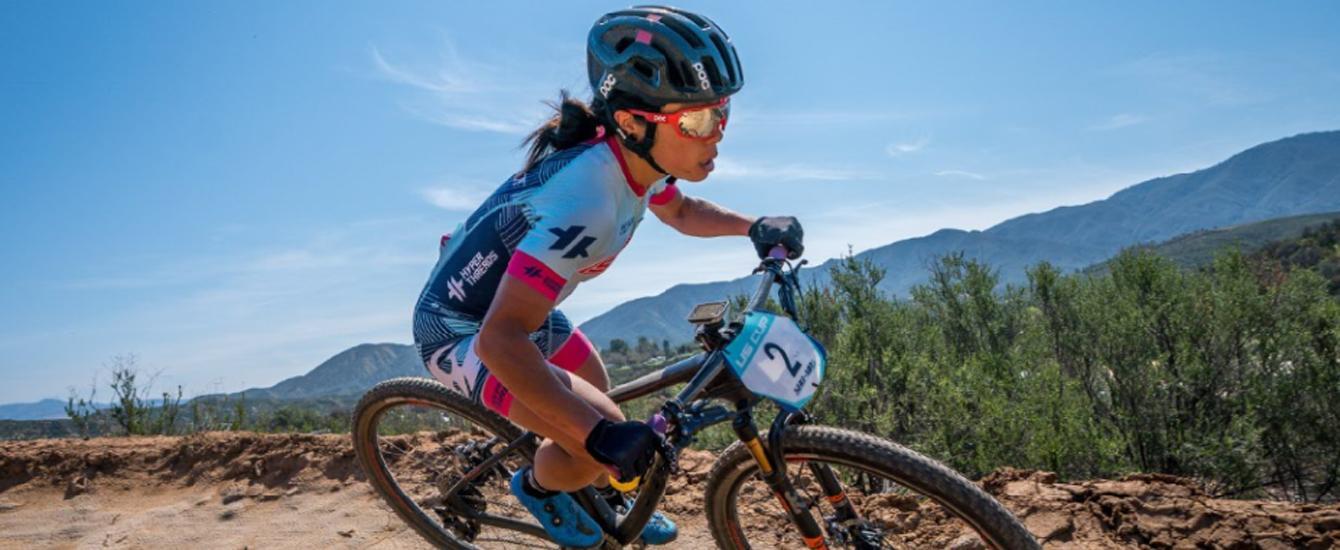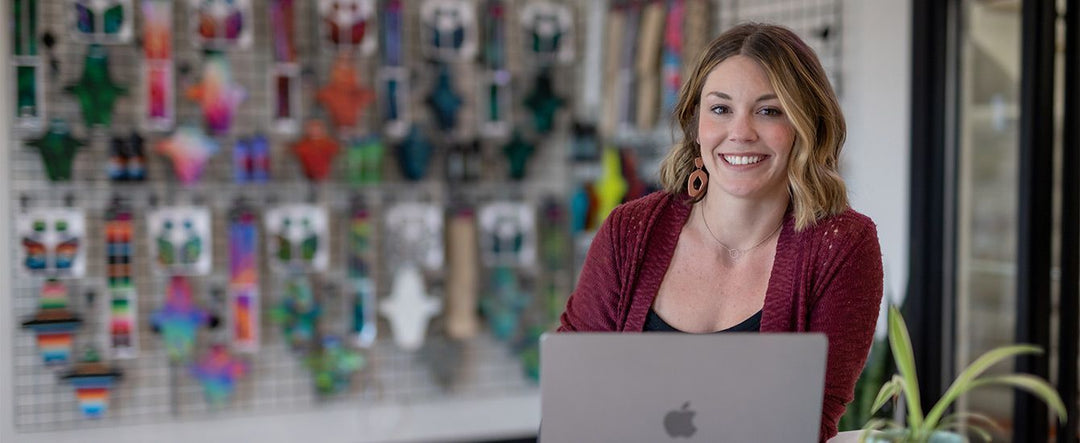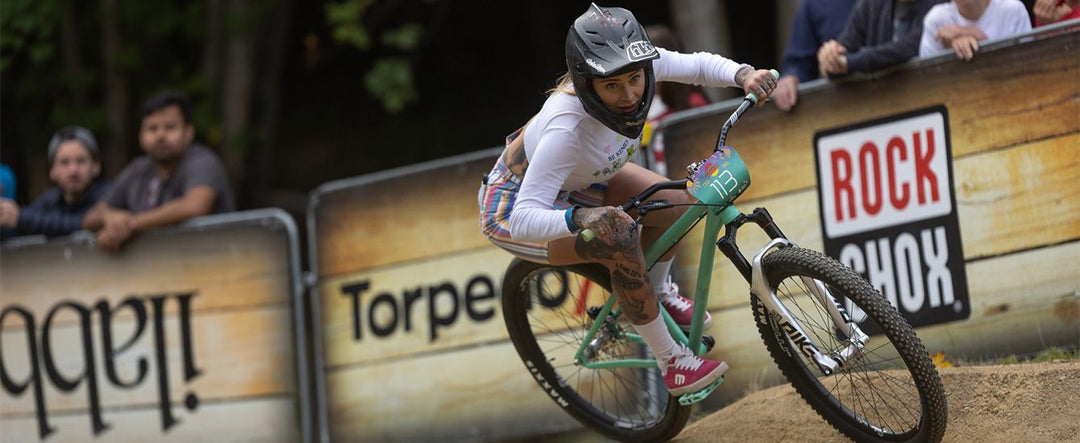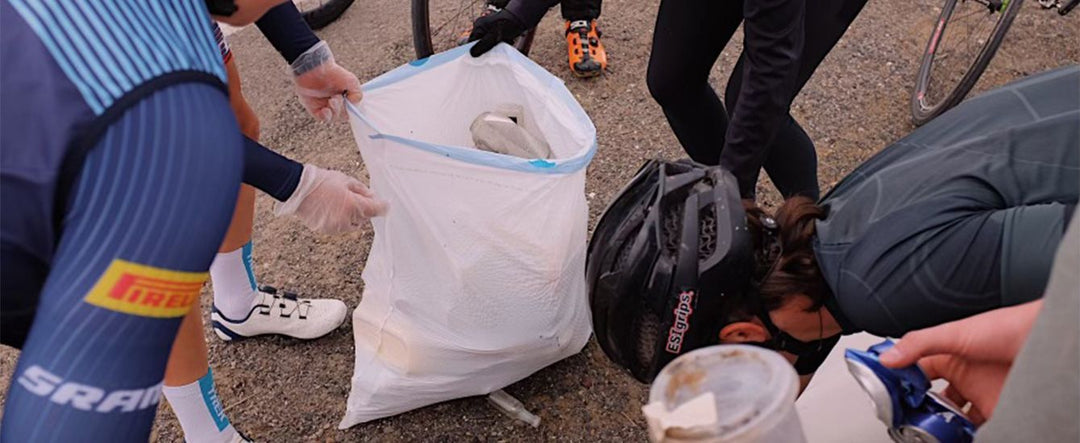Why We Sponsor Riders

Evelyn Dong is Choosing Not to Race, and That's Exactly Why We Sponsor Her
by Chris Currie, Creative Director, Stan's NoTubes
Why does a company pay someone and give them free product? It’s a question many marketing departments don’t always ask themselves, because it’s pretty self-explanatory, right? "Sponsorship," in the bike world, is often seen as a relatively simple process: we give you wheels; you go fast and win; people see you and want to be like you; people buy our wheels.
In reality, it hasn’t worked that way for a long time. To be sure, there are no “pure Kardashians” in the bike industry—those influencers who generate more revenue from a single photo than most of us make in five years of work (though if we ever got to have one of those, it should be Kirt Voreis). We also haven’t quite reached those upper echelons of YouTube stardom where one buys a Lamborghini just to destroy it in a video . . . that generates enough money to buy two more Lamborghinis.
But we don’t pay riders only to ride their bikes. Sure, riding is a key part of the deal, but if you look at brands that know what they’re doing, what you are actually supporting is a human being.
This isn’t unique to the outdoor industry. I’m typing this from just outside Portland, Oregon, home to more than a few popular shoe manufacturers that invest a couple bucks in athlete sponsorship each year. Armed with budgets approximately 400,000% larger than mine, and the research data that comes with such a budget, these companies know that what happens off the court and off the field can be even more important than what happens on it.
A few days ago, I was told that Evelyn Dong, one of our sponsored riders did not feel she could travel to Arkansas to race the U.S. Pro Cup. This is a big deal. Evelyn is a perennial top-10 national racer. Her career includes a Breck Epic victory, GoPro Games Championship, Epic Rides Series overall win, and a Crusher in the Tushar gravel race win (on a borrowed bike). Evelyn is a competitor. Racing is what she does, and after a long time away from racing due to the pandemic, I knew deciding not to race was not something she did easily.

Evelyn made a personal decision not to race in Arkansas based on the state’s stance toward the LGBT community, including a law banning transgender women from particpating in school sports teams, and a bill recently passed by the state Senate that bans access to gender-affirming care for trans youth. Beyond banning access to care, this new bill makes it a felony to provide such care, including even reversible puberty blockers and hormones. On April 5th, Governor Asa Hutchinson vetoed the bill, but it is widely believed that his veto will be overridden, and the bill will become law. Arkansas joins Mississippi, Alabama, and Tennessee in taking actions that restrict freedoms for members of the LGBT community or punish those who provide them care.
Evelyn began to reconsider traveling to Arkansas more than a week ago, but made the final decision on March 31st. "I’ve been following what’s been going in Arkansas, banning gender affirmation care for people under the age of 18 and allowing healthcare to be denied to transgender people,” she told us. “I have made friends with and coached (in my ski coaching days) kids and adults who are not the gender they were at birth. I’ve been lucky in that respect - I think it’s easier to understand people when you know them personally. It was a pretty gut reaction at first, it wasn’t about not spending dollars in that state or anything like that. Honestly I travel pretty cheap, so my impact would have been tiny. Although in a symbolic sense this is good to think about. My reaction was, ‘How could I feel ok with myself racing in a place where my transgender peers would be excluded from?’ Not that they’d be physically excluded, but the hostile environment that is being encouraged is just as bad. I spent a couple days trying to reconcile my gut reaction with my desire to race but couldn’t come to terms with it. So when Kelli Emmett from Juliana contacted me to chat about my thoughts/plans, it was a relief to finally say, 'Nope, not going.' Bikes are for everyone. No, we’re not making laws or saving lives in the immediate sense but as a community, we can make sure everyone feels included and welcome. When we stand back and allow discrimination and hate to happen right in front of us, we all lose out."
At this point, most of us are aware that a professional athlete has a voice, a platform, and, many feel, an obligation to use that voice. It can be more challenging, however, when using your voice means not doing what you love. Evelyn wasn’t under pressure from her sponsors to attend, but for a serious competitor, the decision was still difficult.
"Racing is a big part of my life," said Evelyn. "But it is not my whole life. I love to ride and race but I’m also a bike mechanic and I’m pretty invested in my job. There’s really no concrete consequences for me not attending this event, and for that I am thankful. But this is what I do. I wake up pretty early to train before work—usually it’s cold, dark, and I’m reliant on instant coffee to get me through. I’m not saying this to make this about me, because it’s not. I’m only bringing this up to say that my commitment to racing is big. But really, my glorified hobby doesn’t really matter to anyone else. Racing is a selfish endeavor, and I know that what I put myself through is purely self-induced. What I’m missing out on is the joy of competition. I’m not missing out on UCI points or an Olympic spot or any life goals like that. I really don’t care much about that."

In these times of great unrest and social change, companies are being called on to reevaluate their priorities in many ways. While advocacy is often the most visible expression of a brand’s priorities, I think it’s more important than ever that we also recommit to sponsoring people, not podium spots. Being there for the victories and good times is easy, but being there when it matters to the people you support is a part of sponsorship, too.
Evelyn admits her sacrifice is small—especially given the challenges endured daily by trans youth and other members of the LGBT community—but her commitment is tremendous. Beyond just understanding her decision not to race, we’re inspired by Evelyn’s simple and direct message: "Change can start with bikes," she told us. "Bikes are for everyone."






